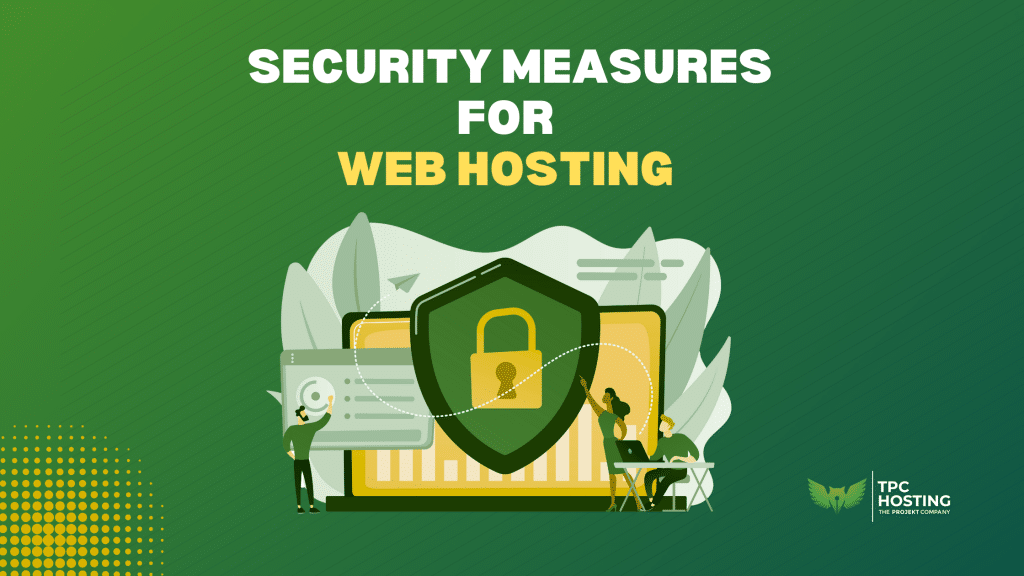
Web Hosting Security Essentials: Protecting Data and Preventing Breaches
Data security is no longer optional—it is a fundamental requirement for any business operating online. A single breach can cause financial loss, reputational damage, and long-term trust issues with customers. This makes web hosting security a critical part of an organization’s digital strategy.
At TPC Hosting, we understand that secure infrastructure is the backbone of reliable hosting. Our approach goes beyond traditional measures, embedding multi-layered defense, proactive monitoring, and compliance-driven solutions to protect businesses against evolving cyber threats.
In this blog, we’ll explore the essentials of web hosting security—the key risks, protective measures, and why choosing a trusted provider like TPC Hosting is vital to safeguarding digital assets.
Why Web Hosting Security Matters
Web hosting security refers to the collection of processes, technologies, and best practices designed to protect websites, applications, and data from unauthorized access, cyberattacks, and downtime.
When overlooked, weak hosting security can lead to:
- Data breaches exposing customer and business information.
- Website defacement damaging credibility.
- Downtime leading to lost revenue and customer dissatisfaction.
- Malware infections spreading through hosted files or applications.
- Regulatory non-compliance (e.g., GDPR, HIPAA), resulting in fines.
For businesses, security isn’t just an IT responsibility—it’s a core business priority
Common Threats to Web Hosting
Understanding threats is the first step toward effective protection. Some of the most prevalent include:
- DDoS Attacks (Distributed Denial of Service): Overwhelming servers with traffic to cause outages.
- SQL Injections: Exploiting vulnerabilities in databases to steal or manipulate data.
- Brute-Force Attacks: Automated attempts to crack passwords and gain access.
- Cross-Site Scripting (XSS): Inserting malicious scripts into web applications.
- Malware and Ransomware: Infecting files, encrypting data, and demanding ransom.
- Phishing and Social Engineering: Targeting users and administrators with deceptive attacks.
Each of these requires layered defense mechanisms rather than single-point solutions.
Essential Security Measures for Web Hosting
To mitigate these risks, hosting providers must implement a comprehensive, multi-layered security framework. Below are key measures businesses should look for:
1. Encryption (SSL/TLS Certificates)
Ensures secure data transmission between users and servers. A must-have for protecting sensitive information like passwords and payment details.
2. Regular Backups
Automated, secure backups safeguard against data loss in case of breaches, hardware failures, or accidental deletions.
3. Firewalls and Intrusion Detection Systems
Advanced firewalls filter malicious traffic, while intrusion detection systems identify suspicious activities in real time.
4. DDoS Protection
Mitigates large-scale attacks by distributing and filtering traffic before it reaches servers.
5. Secure Authentication
Multi-factor authentication (MFA) and strong password policies prevent unauthorized access.
6. Malware Scanning and Removal
Continuous scanning ensures that infected files are quickly identified and isolated.
7. Patch and Update Management
Timely updates of server software and applications reduce the risk of known vulnerabilities being exploited.
8. Compliance Frameworks
Adherence to global standards such as ISO, PCI DSS, and GDPR builds trust and legal assurance.
TPC Hosting’s Approach to Security
At TPC Hosting, we don’t treat security as an add-on—it is integrated into every layer of our hosting solutions. Here’s how we protect your digital environment:
- End-to-End Encryption: All hosted data is secured with SSL/TLS by default.
- Proactive Monitoring: Our systems run 24/7 real-time threat detection and response.
- Advanced DDoS Mitigation: Enterprise-grade protection ensures uptime even during large-scale attacks.
- Regular Automated Backups: Ensuring fast recovery and business continuity.
- Isolated Hosting Environments: Minimizing cross-site vulnerabilities in shared infrastructures.
- Compliance-Ready Infrastructure: Designed to support data privacy laws and industry regulations.
- Security-First Architecture: Every server, data center, and network is built with resilience in mind.
This layered approach ensures maximum protection without compromising performance.
Best Practices for Businesses
While hosting providers like TPC Hosting deliver robust infrastructure, businesses must also play an active role in security:
- Use unique, complex passwords and enable MFA.
- Keep CMS platforms, plugins, and applications updated.
- Conduct regular vulnerability assessments.
- Train employees on phishing awareness and data handling policies.
- Establish a clear disaster recovery and incident response plan.
Security is most effective when it is a shared responsibility between provider and customer.
Conclusion
Web hosting security is not just about technology—it’s about protecting trust, safeguarding data, and ensuring business continuity. In an age where threats are becoming increasingly sophisticated, businesses need a hosting partner that takes security seriously.
With TPC Hosting’s advanced security framework, businesses gain confidence knowing their infrastructure is backed by resilient architecture, continuous monitoring, and proactive defense.
When it comes to protecting digital assets, choosing the right hosting provider is the most critical decision you can make.









